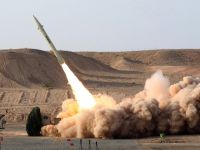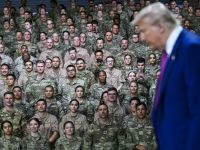The World Trade Organization is circulating a draft demand for a new round of trade talks to be presented at its ministerial meeting in Doha, Qatar, and has announced a preparatory meeting in Singapore on October 13-14. But the launch of a new round of talks rests on some differences, which have yet to be resolved.
With six weeks to go before the November 9-13 meeting in Doha, the 142 members of the WTO were getting a look at two contentious draft documents. Making the rounds are a ministerial declaration that calls for new trade talks and a document on application of the last 1987-1994 Uruguay Round of tariff-cutting agreements, the 142-member WTO said on Thursday, October 2.
The seven-page ministerial working document treats briefly, and noticeably cautiously, the main thorny issues, such as agriculture and the environment. The WTO's secretary-general, Mike Moore, told reporters that he did not have any illusion about the difficulty participants would have to find an agreement.
But he felt that in recent days there had been a new awareness of the importance of the task, he said, referring to a global economic slowdown and international tensions following the terrorist attacks in the United States. Moore said that only a few substantial differences remained.
He said agreement should be found on as many issues as possible at the Geneva headquarters. If not, the situation in Doha could become more difficult. In July Moore expressed alarm about slow progress, despite the support of the United States and the European Union for a new round of trade talks.
Developing countries refuse to have a "second Seattle" — the last WTO ministerial meeting in 1999, which descended into chaos when angry protestors laid siege to the northwestern US city. They say they have given enough in the Uruguay Round and are not prepared to give more as long as they have no satisfactory agreements on their demands for relief.
To address this impasse, the chief of the general council, the WTO's executive body, Stuart Harbison of Hong Kong, has drafted a list of proposals for the implementation of the Uruguay Round's final accords.
The text proposes that measures be taken immediately and at the Doha meeting on such issues as anti-dumping, textile imports, subsidies and sanitation. It calls for the expansion or the opening of negotiations on agriculture, services, industrial tariffs, intellectual property, investment, competition and electronic commerce.
The list also recommends negotiations on the WTO regulations with regard to numerous regional accords, and improvement in the functioning of the WTO trade arbitration facility. Agriculture is lightly treated because it is so contentious. The text refers to reform goals in the areas of market access, domestic subsidies and export competition. The EU's cherished "non-trade concerns" in agriculture are cited.
On the environment, another EU sore point, the text notably proposes a reflection on the coherence between WTO rules and the various environmental agreements. ― (AFP, Geneva)
by Jean-Louis de la Vaissiere
© Agence France Presse 2001
© 2001 Mena Report (www.menareport.com)







